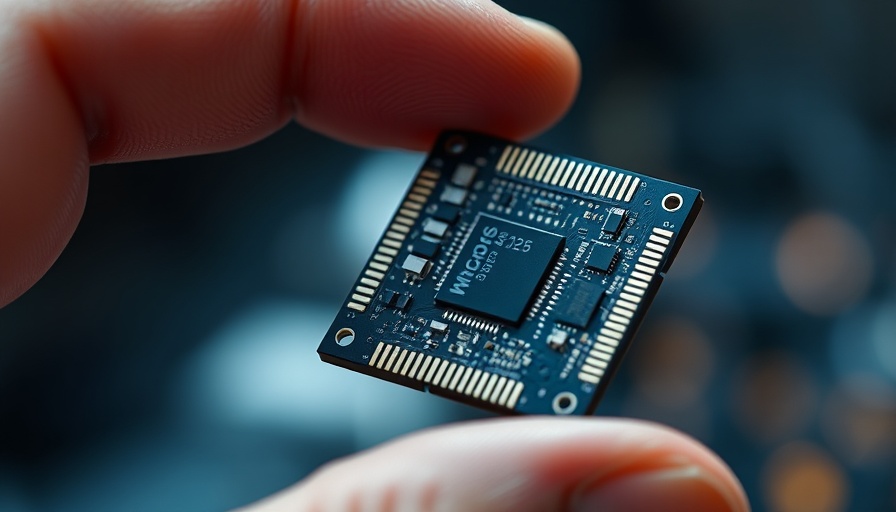
A New Era for Quantum Computing: Microsoft’s Majorana 1 Chip
In a significant leap toward practical quantum computing, Microsoft has officially unveiled its Majorana 1 chip, a pioneering innovation powered by topological qubits. This breakthrough, which has been 20 years in the making, promises to address some of the most critical challenges in quantum computing—achieving stability and scalability in quantum systems. With the potential to house a million qubits on a single chip, Majorana 1 could be the game changer scientists have long awaited.
The Importance of Topological Qubits
To understand the full significance of the Majorana 1, it’s essential to delve into what topological qubits are and why they matter. Traditional quantum computers, such as those developed by Google and IBM, utilize superconducting qubits that are notoriously delicate and require error correction due to their instability. These issues lead to extensive overhead and complexity. In contrast, topological qubits promise greater stability due to their unique properties. Microsoft's approach hinges on Majorana quasiparticles—exotic entities that don’t behave like typical particles, offering an inherent robustness that could revolutionize the construction of quantum systems.
What Makes Majorana 1 Stand Out?
The Majorana 1 chip is the first to incorporate a topological core architecture that can work with a high density of qubits while maintaining stability. Built using state-of-the-art topoconductors, it represents a new class of materials capable of harnessing topological superconductivity. Chetan Nayak, a Microsoft technical fellow, remarked, “What we are developing can scale to industrial applications. A million-qubit quantum computer isn’t just a milestone—it’s a gateway to solving some of the world’s most difficult problems.” This capability sets the stage for practical applications, from simulating complex chemical reactions to developing new materials.
Challenges Along the Journey
Despite this promising advancement, Microsoft’s pursuit of topological qubits hasn't been without challenges. The company's journey faced setbacks, including a notable research paper retraction in 2018 that cast a shadow over its efforts. However, the company redirected these challenges as learning opportunities to foster innovation. Today, the emphasis is on overcoming the myriad technical difficulties associated with constructing and maintaining qubits in their fragile states. The team is demonstrating encouraging results, marking critical milestones along the way to achieving functional, fault-tolerant quantum computing.
Industry Expert Reactions
The announcement of Majorana 1 has sparked interest and cautious optimism among industry experts. Scott Aaronson, a prominent computer scientist from the University of Texas at Austin, expressed hope that Microsoft's efforts will yield meaningful progress. “I’m very glad that [this research] seems to have hit a very important milestone. I hope that this stands, and I hope that it’s built up,” he said, emphasizing the importance of scalable quantum computing to address real-world problems.
Future Applications of Quantum Computing
What does this mean for businesses and the future of technology? The implications of a million-qubit quantum computer are immense. Industries could explore transformative solutions, such as developing self-healing materials, improving chemical processes to eliminate pollutants, and utilizing quantum computing for precise calculations in healthcare and agriculture. Microsoft envisions a future where quantum computers can solve problems beyond the reach of classical supercomputers, unlocking new technologies for a sustainable and efficient world. According to Nayak, “Whatever you’re doing in the quantum space needs to have a path to a million qubits. If it doesn’t, you’re going to hit a wall before you get to the scale at which you can solve the really important problems that motivate us.”
Conclusion: The Road Ahead
The launch of Microsoft’s Majorana 1 chip is more than just another tech breakthrough; it represents a significant stride toward realizing the full potential of quantum computing. As the process of refinement continues, companies must pay attention to how quantum technology will reshape their operations and strategy. With applications that could transform industries, early adoption and investment in quantum computing could prove crucial for future-ready businesses. The journey isn’t just about technology but about creating solutions that matter in our rapidly evolving world.
To stay updated on Microsoft’s continual progress in quantum computing, companies must remain engaged with advancements in this emerging field. Those who harness this technology early may gain a competitive edge in the business landscape of tomorrow.
 Add Row
Add Row  Add Element
Add Element 


 Add Row
Add Row  Add
Add 

Write A Comment